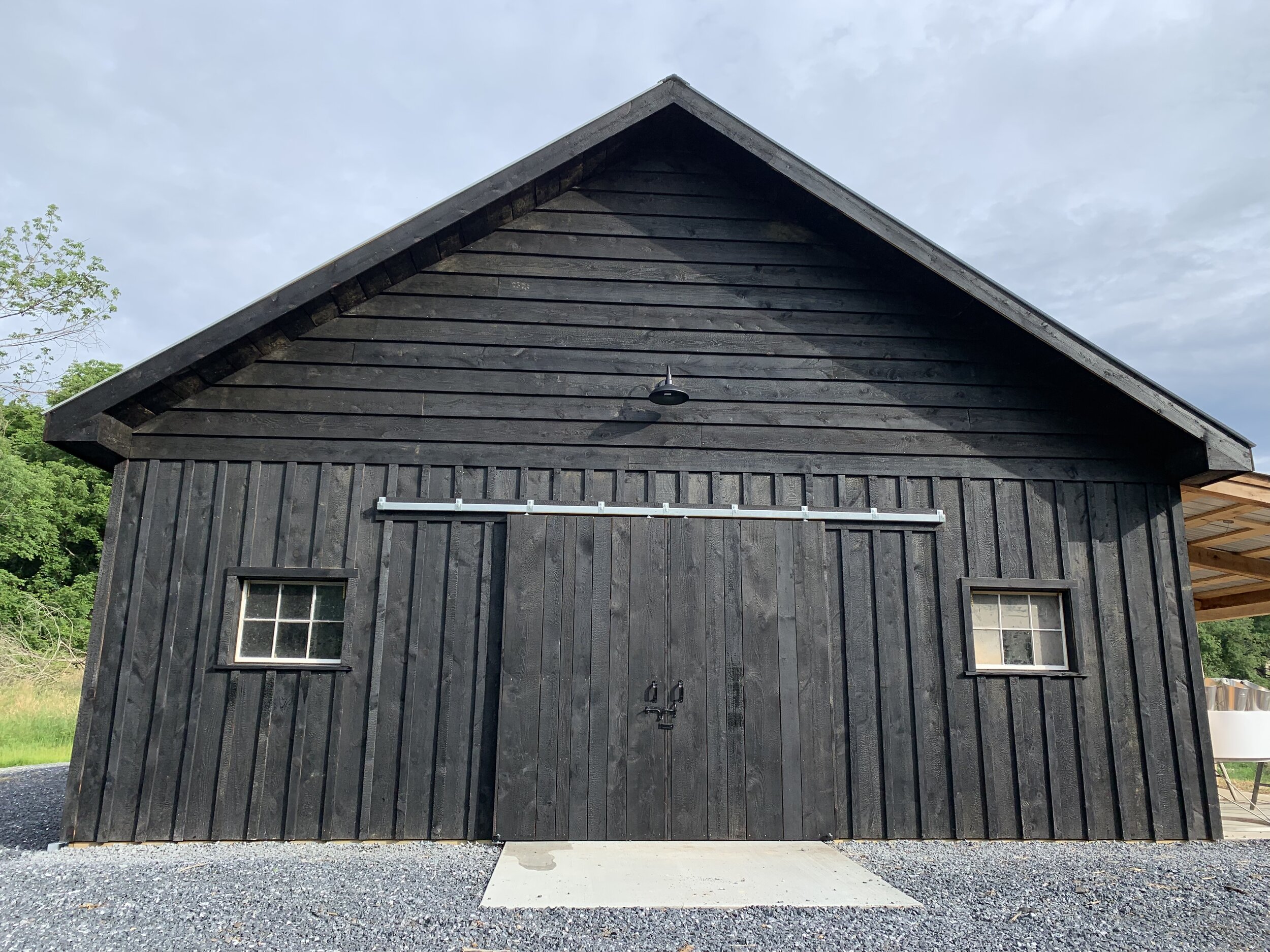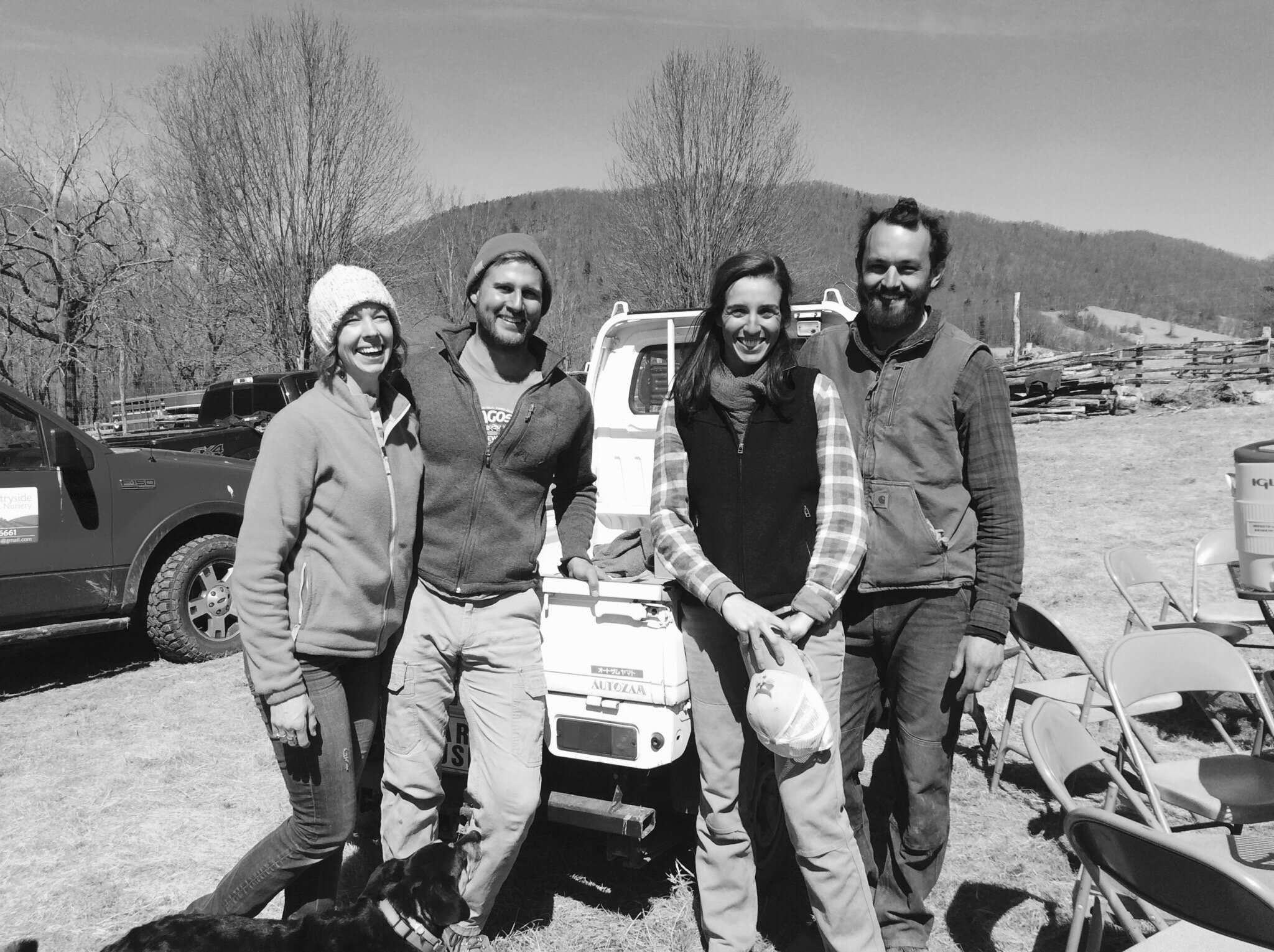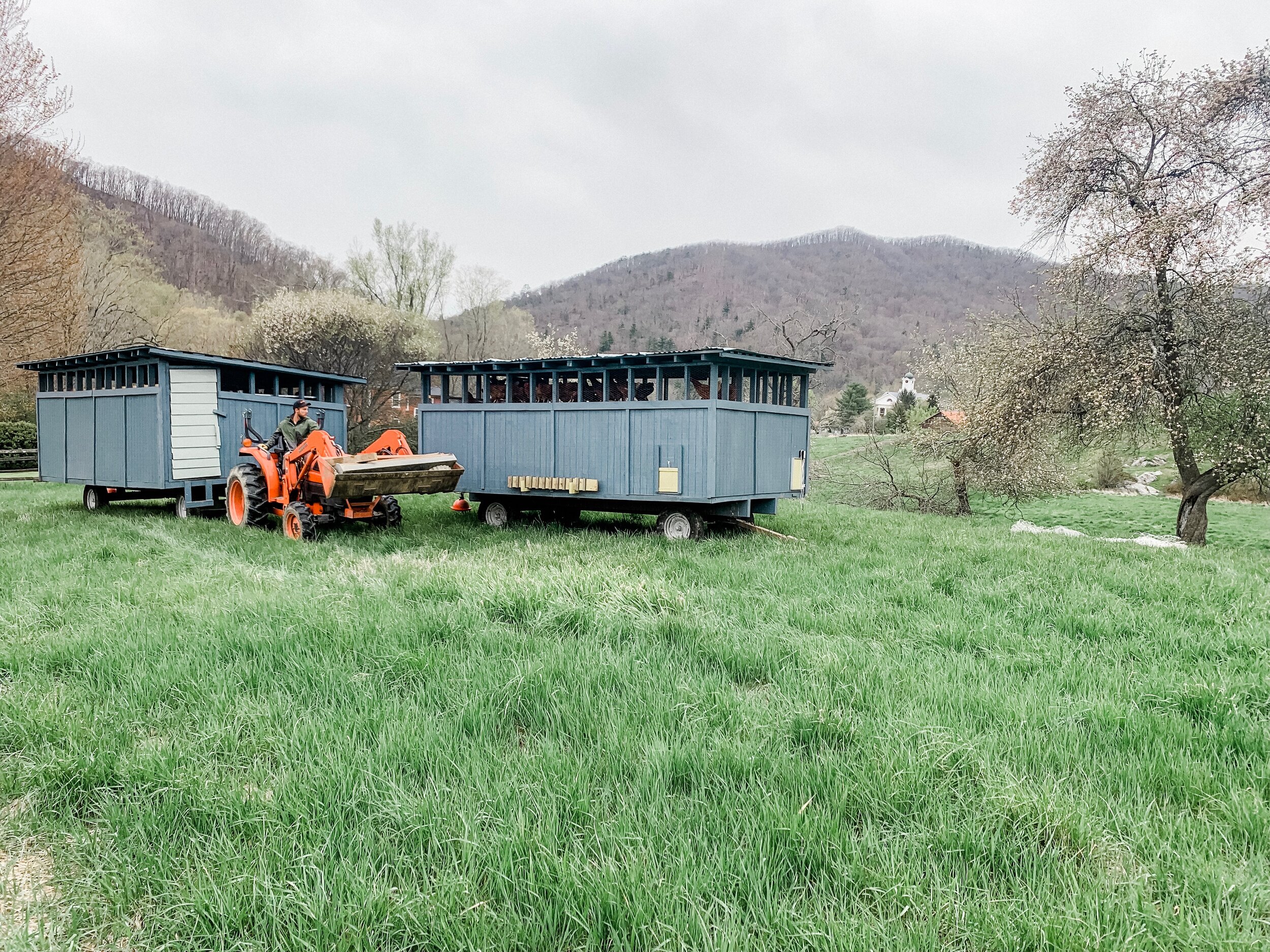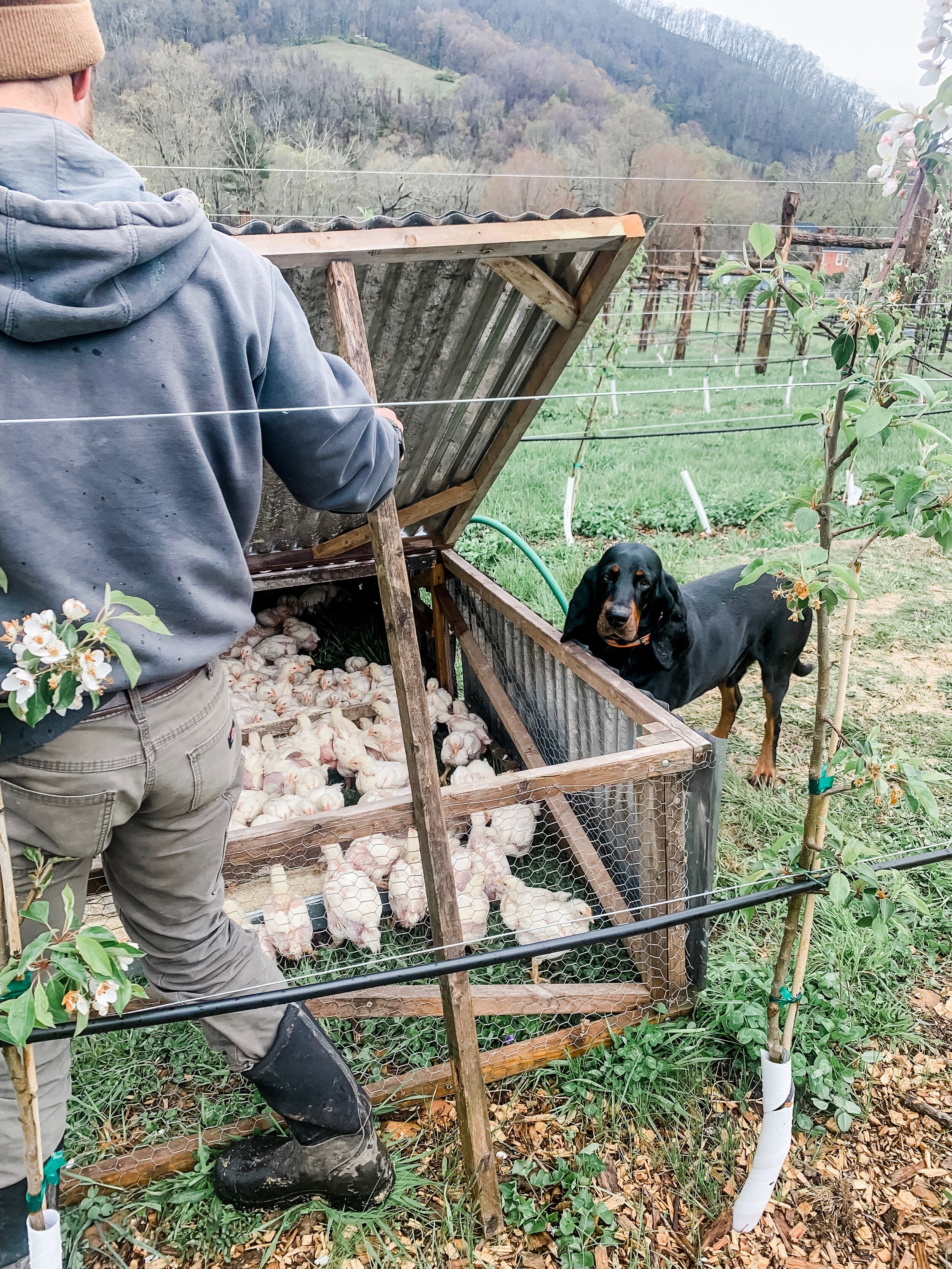At Oakley Farm.
In early 2019, Fireside joined forces with Troddenvale, and the two businesses developed a collaborative partnership at Oakley Farm. Heading south on 220 from Warm Springs, there are four acres of young orchard planted along the western-facing hillside. In an effort to grow their own fruit sustainably, Troddenvale has planted a high-density population of 2,000 semi-dwarfing apple trees. Nestled in between the tree rows or in various pastures throughout the property, you may notice small mobile hoop houses known as “hoop coops”. Within these protective structures, the birds are moved daily and feed on a variety of grasses, seeds, and insects, meanwhile fertilizing the soil and decreasing the amount of gas powered maintenance needed on the various grasses.
The birds’ constant pecking, scratching and fertilizing allows for a variety of cover crops to flourish, further supplanting more nutrients back into the orchard’s root system. Their sharp eyes and keen appetite help reduce pest pressure, as they gorge on young insects found within the orchard floor. Moving the birds on a daily basis helps spread out their impact, allowing for the pasture to slowly rebound while ensuring the birds a fresh and healthy living environment. In Troddenvale’s case, happy birds equal a happy orchard. All the while the costs of maintaining the orchard and pastures are lessened, the vitality and natural diversity are increased, and the poultry operation benefits from flourishing grasses. The diet and health of the chickens are directly translated into the flavor and nutrients found in the products.
Fireside intensively manages these birds from chick, to daily life out on pasture, to their very last day, ensuring the best quality of life and least amount of stress possible. Once the birds are processed here on the farm, their offal is broken down with a carbon rich mixture of wood chips to create a nutrient-dense compost that goes back to the orchard each fall, completing the full circle.
It comes to no surprise, that Fireside and Troddenvale found more ways to integrate their businesses over the past few years together. During 2020, Fireside grew their animal husbandry by adding a flock of Katahdin-Dorper sheep and a drove of Gloucestershire Old Spot pigs to the farm. The pigs have been a key component in reclaiming much of the overgrown wooded areas for silvopasture on Oakley Farm. While they mostly forage on roots, nuts, and grasses, additionally they enjoy Troddenvale’s spent pomace during the apple pressing season each year. Fireside’s growing flock of hair sheep is an integral part of decreasing the need for fuel use on the farm. The sheeps’ presence help maintain the pastures, as well as the orchard rows, and relinquish tasks like brush hogging.
This sort of harmony amongst our two operations not only provides business advantages but equally as important, it ensures we both maintain our regenerative agriculture standards and remain mutually invested in the bigger picture.
The goal is simple: find ways to make use of excess, turning one’s presence and waste into another’s benefit, and bring symbiotic and regenerative agriculture to the forefront of farming education.







